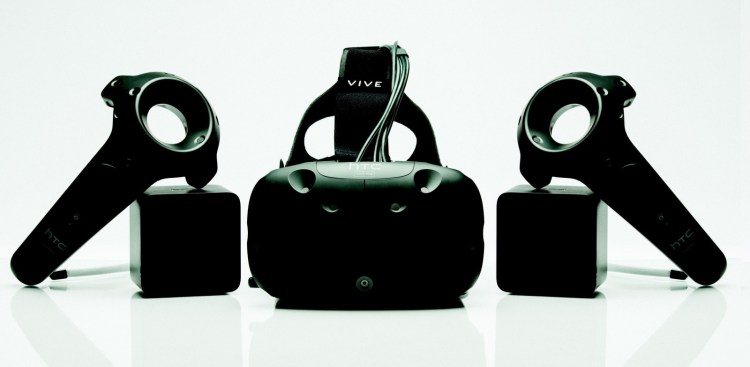Virtual reality might seem inevitable, but we’ve seen this tech go through a false launch once before. As several hardware and software companies invest millions in the space, everyone seems a bit more cautious.
Valve, the developer responsible for the Steam digital-distribution store for PC games, is one of those invested companies that isn’t necessarily putting an immediate emphasis on generating profits. In an interview with RoadToVR, Valve writer — and de facto VR spokesperson — Chet Faliszek said that the company is worrying about its fellow VR developers first. Tech advisor Digi-Capital is predicting that the VR and AR market could generate as much as $120 billion in revenue by 2020.
But Valve doesn’t want to see a company implode because its chasing that promise while simultaneously supporting the HTC Vive. The company’s answer to that is to spend its own money right now to support these studios.
“We want VR to succeed, that’s super-important for us,” Faliszek told RoadToVR. “But more important than that is that we want to make sure that developers don’t get burned. We’re trying to do everything we can for them. [Valve is] funding development as well — I know HTC is as well.”
We will likely see some of those projects over the next few months as HTC, Valve’s first partner making hardware based on VR, prepares to launch the Vive. The Game Developers Conference is coming up in March, and it will have an entire sister show dedicated to VR happening at the same time. That seems not only like a great time for HTC and Valve to show off some more of their projects but also an ideal venue for developers to figure out what it’s like to work with these companies on building their software.
For example, Faliszek says that Valve doesn’t want to keep its third-party partners locked down to SteamVR devices exclusively. Valve thinks that such a deal could hurt a developer in the long term.
“We’ve been [selling games on Steam for ten years,” said Faliszek. “We’ve worked with these developers, they’re our friends, they’re our partners, and we wanna make sure they succeed. So a lot of what we’re doing is trying to help them succeed. We hate the word ‘ecosystem’, but a good ecosystem of virtual reality where they can thrive on that. They should be on every platform, and that’s what we’ve always said to every developer.”
Of course, that’s the opposite approach that Oculus is taking with its software. The Facebook-owned VR company is building up a library of Rift-exclusive games by making deals with studios to help fund their development. That could make the Rift more appealing in the near term, but if it’s not also beneficial for developers, game makers might hesitate before going to make a second or third game.
Correction: This article originally stated Digi-Capital’s forecast for the VR and AR market is $150 million. That was an old estimate. We apologize for the error.
VentureBeat's mission is to be a digital town square for technical decision-makers to gain knowledge about transformative enterprise technology and transact. Learn More

